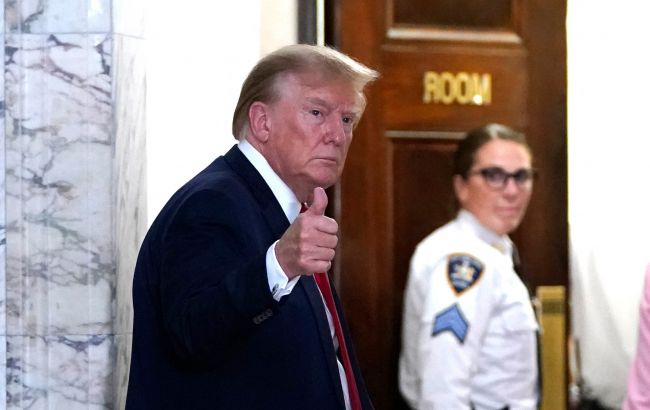Trump takes legal action to contest denial of immunity in lawsuit
 Photo: Trump takes legal action to contest denial of immunity in lawsuit (Getty Images)
Photo: Trump takes legal action to contest denial of immunity in lawsuit (Getty Images)
Thursday, December 7, Donald Trump initiated an appeal against a D.C. judge's ruling that he is not immune from federal criminal charges related to his attempts to overturn the 2020 election results. This move could significantly impact the timing of his trial and its intersection with the 2024 presidential election, The Washington Post reports.
Judge Chutkan ruled against Trump on December 1, denying his motion to dismiss the D.C. indictment based on presidential immunity and constitutional grounds. She asserted that the former president does not have absolute immunity for actions taken in his presidential role.
Trump's lawyers argue that his actions as president should grant him immunity and that the charges violate double jeopardy principles since he was acquitted in his congressional impeachment for his role in the events leading to the January 6, 2021, riot.
Prosecutors are pushing for a swift trial, while Trump's defense insists on more time for preparation, citing his status as a former president and a current presidential candidate. The appeal raises significant legal questions that the Supreme Court may need to address, particularly concerning a president's immunity from indictment and prosecution for actions taken while in office.
Presidential immunity
Judge Tanya Chutkan's ruling against former President Donald Trump emphasizes that presidential immunity does not extend to actions that could be criminally prosecuted once a president leaves office. She argues that this prospect doesn't unconstitutionally impair executive function.
Chutkan asserts that potential future criminal accountability could motivate presidents to adhere more closely to the law. She also clarifies that federal criminal prosecution of a former president does not interfere with ongoing official duties and is distinct from state or local prosecutions, which the Supremacy Clause limits.
Legal battle
The background of this case stems from Trump's actions related to the 2020 federal election, leading to charges of election interference. This legal battle is part of a broader series of legal challenges Trump faces, including a separate federal appeals court decision last Friday rejecting his bid to dismiss civil claims related to the Capitol riot on January 6, 2021, on the grounds of presidential immunity.
On Friday, U.S. District Judge Tanya Chutkan denied two former President Donald Trump motions to dismiss a federal election interference case against him. Chutkan ruled that a president does not have absolute immunity from criminal prosecution for official acts and that the indictment does not violate the First Amendment.
Trump's team, which filed the motions in October citing constitutional grounds, may appeal the ruling. Trump faces four counts of criminal conduct related to the 2020 election and has pushed to postpone his trials until after the 2024 election. The trial overseen by Chutkan is scheduled for March, with a separate problem in Florida set for May.
This development is crucial given the proximity of Trump's scheduled trials and the upcoming campaign season, as it could delay the problems significantly.
Recently we wrote that on Ramstein-17, Trump said he had developed a peace plan for Ukraine. Zelenskyy commented on this, saying, "ready to listen to his plan, but giving Donbas and Crimea is not a peace plan."

